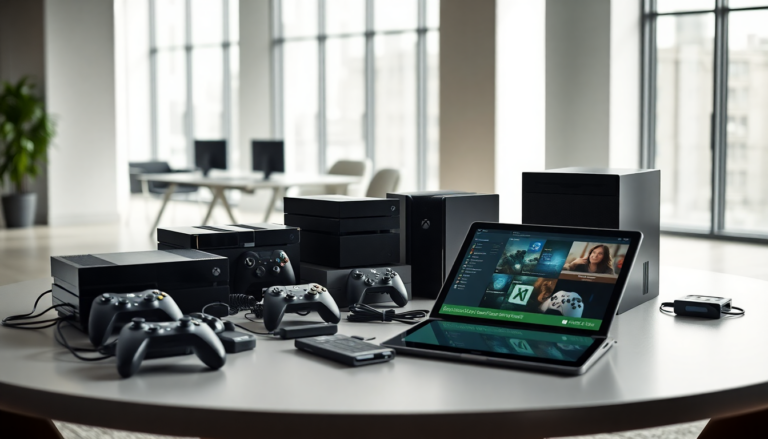Argomenti trattati
In a surprising turn of events, Laura Fryer, a co-founder of Xbox, suggests that Microsoft is gradually distancing itself from its hardware beginnings. Fryer, who played a crucial role in shaping Microsoft’s gaming ecosystem, recently shared her thoughts in a video, boldly declaring that “Xbox hardware is dead.” This statement emerges as Microsoft appears to be shifting its focus from hardware production to software services.
Fryer’s Background and Concerns
Laura Fryer’s journey in the gaming industry kicked off in 1995 when she joined Microsoft Game Studios. As a producer, she was instrumental in launching several notable titles. By 2000, she became part of the founding team of Xbox and later led the Xbox Advanced Technology Group. Fryer also served as executive producer for popular exclusives like the Gears of War series and Zoo Tycoon. After her time at Xbox, she transitioned to become the general manager of Epic Games’ Seattle studio and now shares her insights as a content creator on YouTube.
In her latest video, Fryer voiced her concerns about Microsoft’s current trajectory, hinting that the company might be laying the groundwork for a phased exit from the hardware market. She pointed to emerging signs of this shift, mentioning the release of third-party devices branded with the Xbox name, such as the ASUS ROG Xbox Ally and the Meta Quest S3 Xbox Edition, as early indicators of Microsoft’s evolving focus.
“As a founding member of the Xbox team, I am not satisfied with the current situation. It pains me to see the value I helped create slowly erode,” Fryer lamented. She elaborated on her concerns, expressing that it feels like Xbox is no longer committed to hardware production. Instead, she interprets the partnership with third-party manufacturers as a sign of a gradual retreat from the hardware landscape.
Focus on Game Pass and Future Strategies
Fryer believes Microsoft’s strategy is shifting away from proprietary hardware and moving toward expanding its Game Pass service. “Personally, I think the Xbox hardware is dead. The plan seems to be to push everyone toward Game Pass. And let’s be clear, it has significant value. Perhaps this is why they decided to charge $80 for The Outer Worlds 2… But who knows? Maybe it will work out,” she stated. This perspective highlights a significant pivot within Microsoft, emphasizing reliance on software and services over traditional hardware sales.
Despite her skepticism regarding Xbox’s current offerings, Fryer sees potential for revitalization with Microsoft’s upcoming celebrations for the 25th anniversary of Xbox. “Xbox has a vast catalog. The remake of Oblivion has been a considerable success, and they can continue to leverage external studios for similar projects, benefiting from the release of classic titles from an era when Xbox excelled at game development,” she noted.
Looking Ahead: The Future of Xbox
Fryer raises important questions about the long-term vision for Xbox, asking, “What is the long-term plan? Where are the new hits? What will keep people interested in Xbox 25 years from now?” She expressed enthusiasm for upcoming titles like Clockwork Revolution but questioned whether these would be enough to reignite interest in the brand.
As the 25th anniversary approaches, Fryer remains hopeful that significant announcements could change the narrative surrounding Xbox. “I’m sure there will be major announcements and initiatives to mark this milestone. Maybe this will be the year when the fog clears, and we can appreciate the beauty of these new announcements. I suppose we’ll just have to wait and see,” she concluded.

